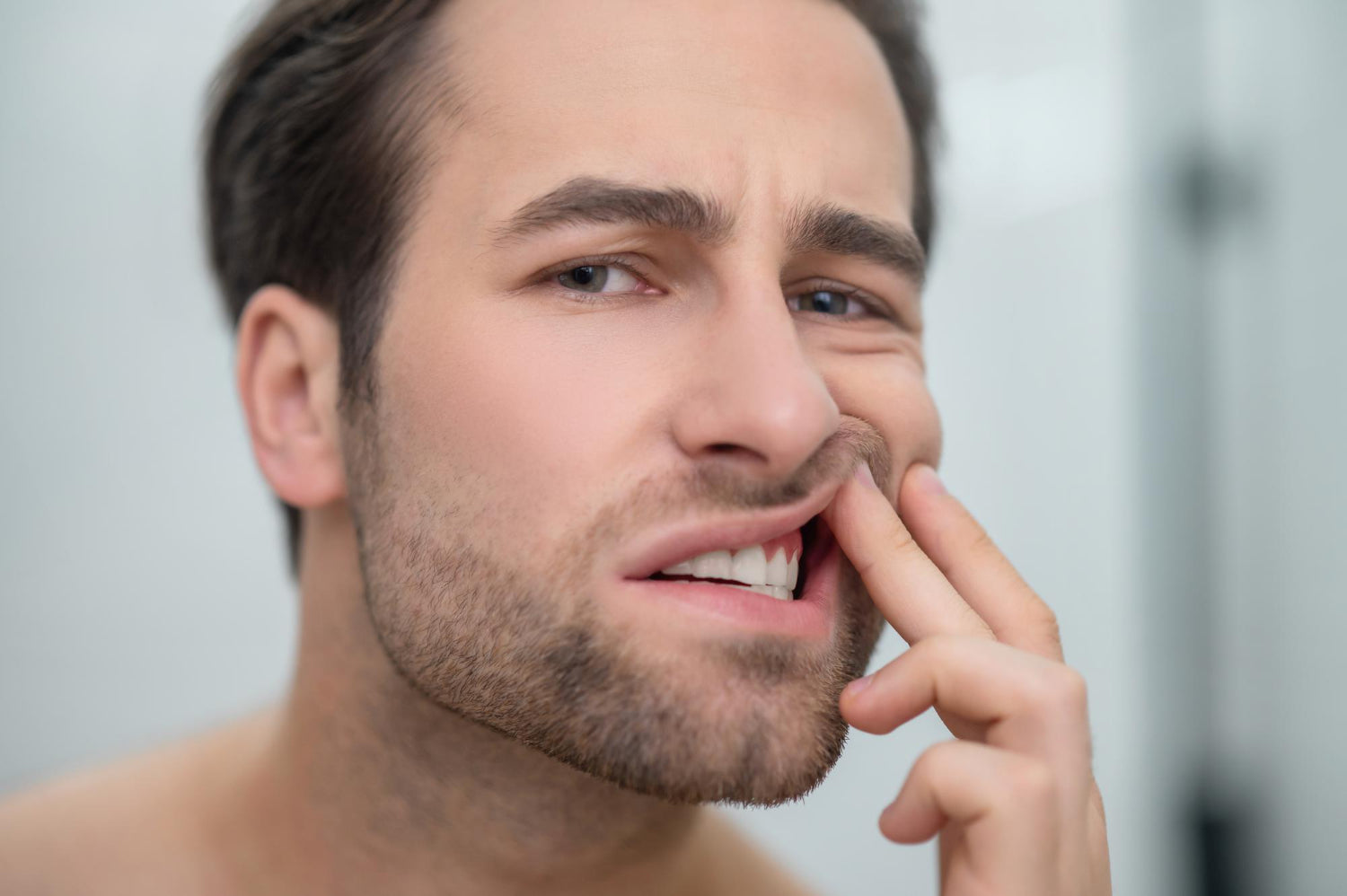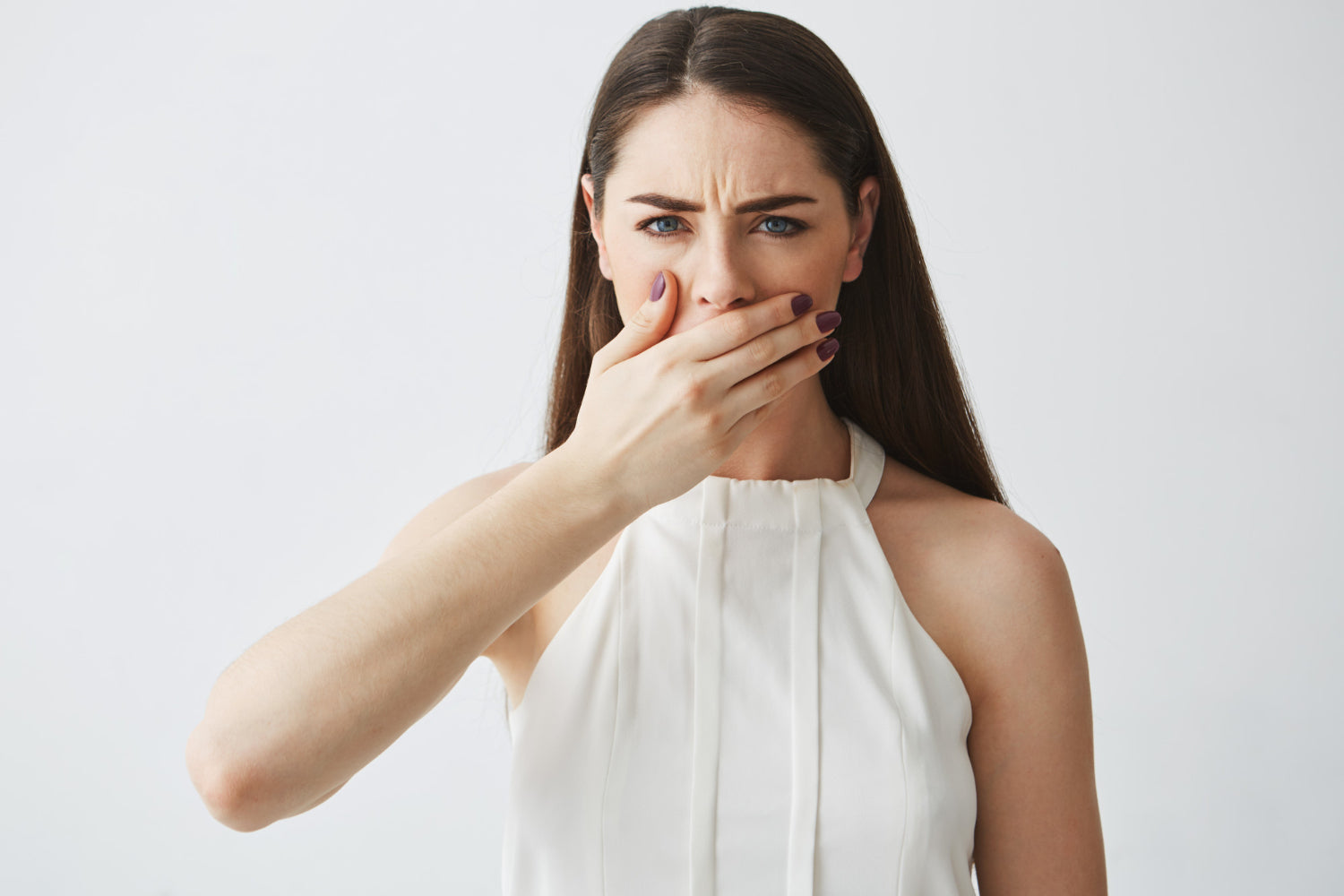Do you wake up more often in the morning with jaw, head or ear pain? Does your jaw sometimes crack when you open and close your mouth? One possible cause could be that you grind your teeth during sleep or press them together spasmodically. Your dentist will refer to this as bruxism.
Teeth grinding or jaw clenching can be triggered by jaw misalignments, but most often it is due to the emotional stress of the affected person. Due to tension, there is an increased strain on the jaw muscles. By clenching, stress is released. Experts therefore refer to teeth grinding or jaw clenching as a "valve for stress relief".
Studies show that around 20 percent of the population grinds their teeth, and women are more affected than men. However, there is less grinding with increasing age. While 14 to 18 percent of children grind their teeth at night, only five to six percent of adults do so. Among those over 60, only around three percent still suffer from bruxism.
Teeth grinding: How teeth and jaws suffer
Many people don't even know that they grind their teeth at night. However, morning headaches and painful jaw or facial muscles should definitely be taken seriously, as persistent bruxism is dangerous for teeth and jaws. This is especially true for the so-called tooth structure, which suffers from the rubbing of the teeth against each other. Cracks appear in the enamel and, in advanced stages, fractures of the tooth structure. Damage to the neck of the tooth can also occur, and ceramic veneers and crowns can chip. In addition, oral mucosa and jaw muscles can be damaged.
The consequences of teeth grinding are unpleasant and painful, but fortunately there are several ways to manage teeth grinding.
It is recommended that you talk to your dentist about your morning headaches or jaw pain. She or he can check if your teeth have already been damaged and prescribe a bite splint, also called a grinding splint.
What helps with teeth grinding?
The bite splint is a denture-like plastic support that can correct the contact between the teeth of the upper and lower jaw. It prevents the teeth from rubbing and clenching. Such protective attachments are also freely available in stores, such as drugstores, but these splints are not exactly fitted to your teeth. Pressure marks may occur or the splint may fall out easily at night. A dentist can custom-make the bite-out splint to make it more comfortable to wear.
Wearing a bite splint ensures that the teeth suffer less damage, but it does not combat the cause, which is usually stress. It is recommended that you deal with stressful situations in your everyday life. For example, before going to bed, take a few minutes to become aware of your negative feelings. It is best to write them down, because letting go of the negative thoughts is usually easier then.
Try to consciously relax your jaw and facial muscles before falling asleep and, if possible, ask your partner for help. Have them wake you up as soon as your partner hears you grinding your teeth. Then you can consciously relax your jaw and facial muscles again.
Teeth grinding: Careful oral hygiene is essential
Of course, it is also important that you pay attention to careful general oral hygiene. Brushing your teeth carefully and flossing regularly will help reduce the complications that can arise from grinding.




Leave a comment
All comments are moderated before being published.
This site is protected by hCaptcha and the hCaptcha Privacy Policy and Terms of Service apply.